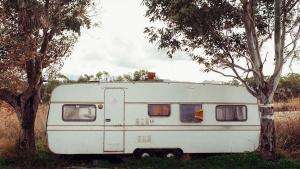'The government is gambling with children's lives'...

Published by Professional Social Work magazine, 9 February 2023
As debate rages over a government consultation on new standards for semi-independent living for 16-17-year-olds, there is a danger the voices of young people affected will be lost, LOUISE PALFREYMAN reports…
The plight of more than 7,000 teenagers in care living without adequate support in bedsits, hostels, shared houses, caravans and even barges has become increasingly urgent.
There have been 29 deaths in the past five years due to inadequate safeguarding, and evidence from the children themselves shows they face increased risk of abuse, harm, poverty, drug use and poor mental health.
Widespread child protection concerns sparked changes in legislation in 2021 that mean no child under 16 can be placed in a non-care setting.
But older teenagers under the age of 18 are still being placed in unsuitable and dangerous settings with no support. The majority of providers are private companies.
The government is seeking to introduce four new quality standards, making those who run unregulated accommodation register as ‘supported accommodation.’
Ofsted inspections would take place every three years - a third as frequent as children’s homes – but barges and caravans have not been ruled out, with the Department for Education (DfE) saying they may be “the right option… in some limited and exceptional circumstances”.
The nature of the support on offer is currently being fiercely debated, with campaigners pointing out that there is a significant difference between ‘support’ and ‘care’.
Amid fears of a two-tier system emerging, children’s rights group Article 39 is urging ministers to listen to the views of those who should matter the most.
In a survey published in January, 97 per cent of 16-17 year-olds living in care settings at home, in foster care, children’s homes or unregulated accommodation said it is necessary for children their age to have someone:
- to chat and to show an interest in them
- who shows and tells them that they are loved
- to deal with emergencies like break-ins, internet connectivity and utility issues
Almost all (96 per cent) feel it is necessary to have someone who can protect them if they are in danger.
The children were asked to name their top three priorities for ensuring every 16 and 17 year-old feels cared for. They said:
- “Consistent support. Not being abandoned at 16.”
- “Carers who are good role models and caring, warm safe and loving environment, a motherly/fatherly figure who can give advice and help.”
- “Feeling safe… having someone there for support and advice and feeling accepted and loved… since we’re so vulnerable at this age.”
The children also feel that everyone needs care where they live, no matter how old they are. Only 29 per cent felt that people are ready to live without care from the age of 25.
Article 39 points out that 37 per cent of looked-after 16-17 year-olds are living in accommodation with no day-to-day care, an increase of five per cent on last year.
The charity is critical of the fact that the DfE consultation omits any requirement for children to receive care from those who have day-to-day responsibility for their wellbeing.
Carolyne Willow, Article 39 director, said: “Recent government policy has deliberately taken the care out of the care system for 16 and 17 year-olds, a cold-hearted turn that must be reversed. I hope it’s the voices and views of teenagers themselves that convince policymakers to make that change.”
BASW has called the proposals “institutional neglect under the pretence of so-called ‘independence’”.
Rebekah Pierre, a care-experienced BASW professional officer, said: “The government is gambling with children’s lives by allowing them to be placed in care-less accommodation.
“It has failed to heed serious case reviews, dire statistics, and warnings from care-experienced survivors. There is no excuse not to listen to 16-17 year olds. They are not asking for the world. Like all of us, they want to be loved, cared for, and protected from danger. All of which should be the bare minimum in a so-called care system.”
Ofsted, in its response to the government consultation, has warned about “taking an over-simplistic approach to registering providers” and says a clearer definition of what constitutes a supported accommodation provider is needed.
England’s Children’s Commissioner Dame Rachel de Souza is calling for all unregulated accommodation to be ultimately registered as children’s homes and provide care, with a greater focus on nurturing relationships, what to do when vulnerabilities arise, adequate management of facilities, and strong accountability.
In her response to the consultation, she said: “To me, it is clear these reforms do not go far enough. Children aged 16 and 17 can still be placed in settings where they legally cannot receive much-needed care. My ultimate aim is to get to a point where every child in care is living in a setting that is able to provide them with care rather than just support.”
Children’s minister Claire Coutinho said: “Supported accommodation can work well for young people but in too many cases standards have fallen short and vulnerable young people have paid the price.
“I am determined that we stop this and that supported accommodation is of the same high standard across the country.”
